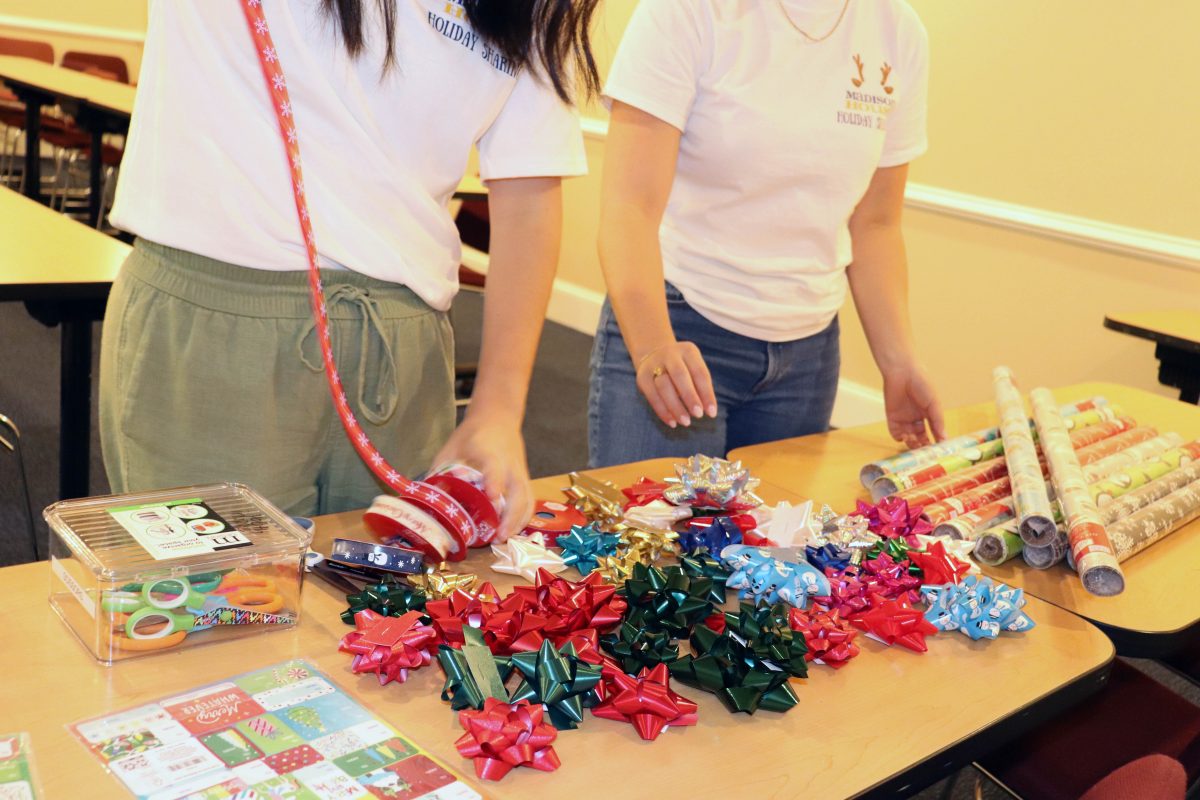In addition to celebrating the season themselves, a number of local organizations are gathering donations for community members this December.
The median household income in Charlottesville is $67,177, but the poverty rate in the city is more than double the state average—23.6 percent, according to current census data. To ease the burden of holiday expenses, several area nonprofits and businesses are hosting donation drives for individuals, families, and animals experiencing hardship. C-VILLE spoke with five organizations via email about their merry-making efforts: The Salvation Army, Come As You Are Cville, Madison House, Charlottesville-Albemarle SPCA, and Jefferson Area Board for Aging.
Through the Salvation Army’s Angel Tree program, 1,009 children and 191 teenagers across the Charlottesville area will receive gifts this year. Recipients qualified for the program through an application, interview, and verification process earlier in the fall, and will pick up their gifts at an assigned time.
“We are happy to be providing this service again to those who are struggling with making ends meet,” said Major Jennifer Van Meter, corps officer for the Salvation Army. “We want people to be able to celebrate Christmas without a financial burden.”
To adopt an Angel, visit one of the many trees at locations around town, including the YMCA, Walmart, and Dairy Market. The deadline for dropping off gifts is December 15.
Come As You Are Cville has partnered with several groups for its annual Christmas toys giveaway.
“By providing gifts, you are helping to level the playing field and provide opportunities for these children to experience the joy of Christmas,” said Stephane Kabesa, associate director of CAYAC. The nonprofit hopes to give gifts to 160 registered children in lower-income families in Charlottesville and Albemarle. Donations should be dropped off by December 12 at 4pm at the Jefferson School Foundation on Fourth Street, NW.
The Holiday Sharing program at the University of Virginia’s Madison House will support more than 40 families this year. Those referred to the program receive personalized gifts and need-based donations, and are welcomed by student volunteers at events throughout the season. Through a partnership with the Batten School, Madison House also provides families with food and grocery-store gift cards.
One highlight of Holiday Sharing for many students is distribution day, when children of participating families visit Madison House and decorate cookies, make gifts for parents, and play games.
Individual and business contributions to Holiday Sharing can be made year-round.
For furry friends, the Charlottesville-Albemarle SPCA is accepting donations to its Branches of Hope Giving Tree program through Christmas Day. There are currently six trees at businesses around town, with roughly 300 ornaments, according to Development Manager Lauren Krohn.
“Each ornament contains either a ‘wish list’ of items we use or provide [for] the animals regularly here at the shelter, food to stock our Pet Food Pantry, or a monetary donation amount that corresponds to an item or treatment (such as vaccines, microchipping, etc.) that we provide the animals,” said Krohn. “This donation drive will benefit our resident animals here at the SPCA, as well as the families who rely on our veterinary and pantry services.”
CASPCA is expected to surpass its 2023 total of 2,658 adoptions, and has served almost 500 families in its veterinary clinic this year. Pantry services are also popular, with more than 29,000 pounds of dog and cat food distributed.
While giving trees end after Christmas, CASPCA accepts donations year-round. Popular items include pet food, dog beds, and toys.
Across its service area of Charlottesville, Region 10, and five neighboring counties, Jefferson Area Board for Aging is working to bring merriment to older and disabled adults this December. More than 150 people will benefit from the holiday gift drive, which includes both practical and fun items.
“We hope that the gift bags will let our members know that they are loved, appreciated, and, most of all, seen,” said Teresa Cooper, a JABA volunteer service coordinator. “We were blown away by the donations and support from our community, and are so thankful. Our volunteer center is overflowing with gifts for our members.”
The donation window for JABA’s holiday gift drive has closed, but the organization always welcomes items such as arts and crafts supplies, puzzle books, and household items.
More information on donation drives and other ways to support community members can be found on the organizations’ websites.

